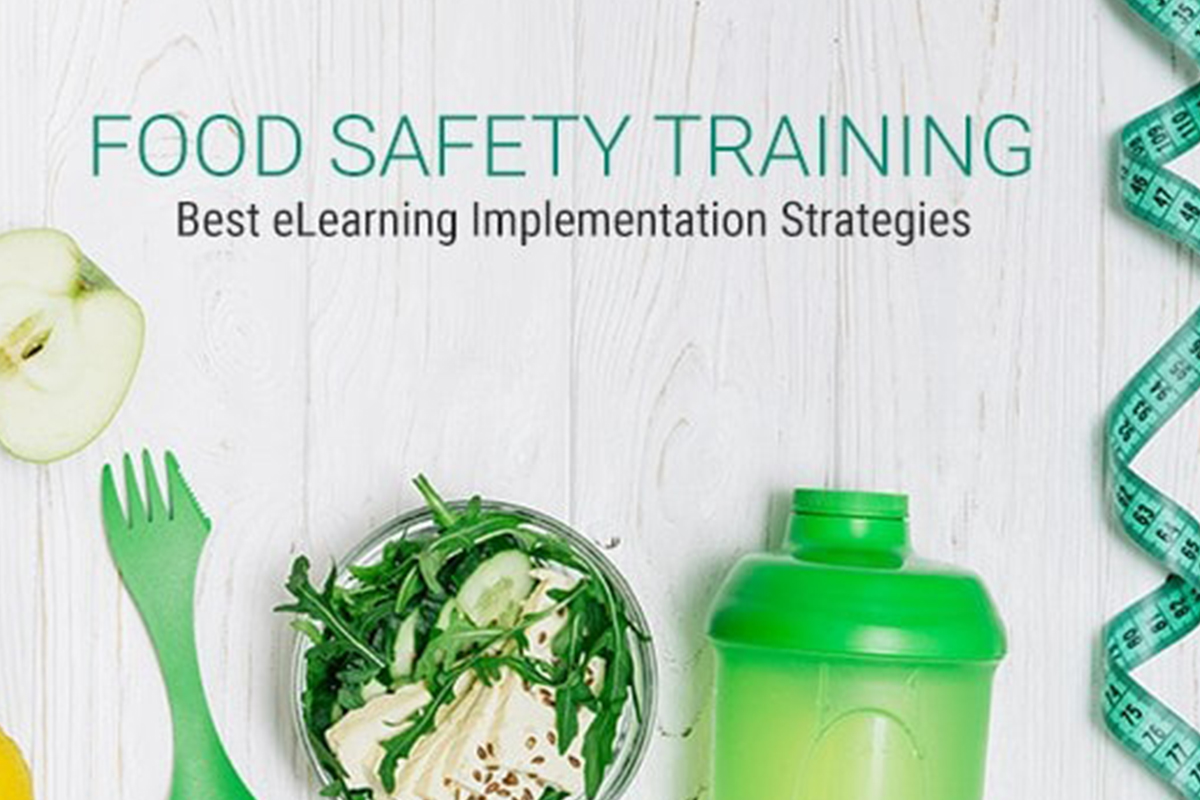Last Updated on February 26, 2024 by Admin
In the fast-evolving world of today, the necessity for continuous education and training has never been more critical, especially in the world of food safety. With a globalized food supply chain and increasing awareness of food safety issues, individuals and organizations must remain vigilant and educated. Online learning has emerged as a transformative solution, providing a flexible, accessible, and comprehensive approach to E-learning food safety training.
By leveraging online courses, learners can easily adapt to the evolving demands of the food industry, ensuring they remain compliant with safety standards and ahead in their professional development. Furthermore, the importance of reskilling and upskilling cannot be overstated in today’s rapidly changing work environment. It empowers employees to adapt to new technologies and methodologies, ensuring that they remain competitive and effective in their roles. This article examines why e-learning is a crucial tool for individuals seeking to enhance their knowledge and skills in food safety and why organizations should consider implementing online food safety courses.
The Need for Food Safety Training
The consequences of foodborne illnesses can be severe, ranging from mild discomfort to fatal outcomes. Those involved in the food production and handling chain must be well-versed in safe practices to minimize risks and ensure consumer safety. It is where the importance of food safety education becomes evident.
E-Learning: A Modern Approach to Food Safety Training
E-learning, or electronic learning, has revolutionized the educational scenario, offering a digital alternative to traditional classroom settings. In the context of food safety training, e-learning provides a robust platform for individuals to acquire and update their knowledge and skills.
1. Accessibility
One of the standout benefits of e-learning food safety training is its unparalleled accessibility. Learners can access course materials and resources from anywhere worldwide. It breaks down geographical barriers, making it feasible for all to receive quality training.
2. Flexibility
E-learning offers unparalleled flexibility, accommodating various learning styles and paces. Learners can progress through the materials independently, revisiting concepts as needed. It ensures a personalized learning experience tailored to the individual’s needs and schedule.
3. Cost-Effectiveness
Enrolling in an online food safety course can be significantly more cost-effective than traditional classroom-based training. It eliminates the need for travel, accommodation, and physical materials, reducing the overall cost of training.
4. Consistency and Quality Assurance
With e-learning, every learner receives the same quality of training, ensuring consistency across the board. Traditional training methods may vary depending on the instructor’s expertise and approach. Still, e-learning provides a standardized curriculum, ensuring that all participants receive the same level of training.
5. Up-to-Date Content
The food industry is ever-evolving, with new regulations, practices, and challenges emerging regularly. E-learning platforms can quickly update course materials to reflect the latest developments, ensuring learners are continuously updated with current information.
6. Interactive Learning Experience
E-learning platforms offer interactive and engaging content, including videos, quizzes, and simulations. It enhances the learning experience, making it more exciting and compelling than passive learning methods.
7. Certification and Professional Development
Completing a food safety certificate online not only enhances an individual’s knowledge and skills but also provides tangible proof of their commitment to food safety. The certification from a reputed institution proves that the individual is well-trained and dedicated to maintaining high food safety standards. Moreover, this achievement not only upgrades one’s expertise but also significantly boosts their employment prospects, making them a valuable asset to any food-related organization looking for skilled and certified professionals.
8. Support and Community
Many e-learning platforms offer support through forums, chatrooms, and direct instructor communication. It fosters a sense of community and provides learners with the opportunity to connect with peers and experts in the field.
9. Standardized Evaluation and Assessment
E-learning food safety programs offer standardized evaluation and assessment methods, ensuring all learners are tested on the same criteria and standards. It is crucial to maintain the integrity of the food safety certificate online, as it guarantees that every individual who receives the certification has met the requirements and is well-equipped to uphold food safety standards.
10. Resource Availability
With an online food safety course, learners have access to a plethora of resources right at their fingertips. From study materials to case studies and industry insights, everything is available in a centralized location. This abundance of resources ensures that individuals are well-prepared and can dive deeper into specific areas of interest, reinforcing the importance of food safety and its practical application in various settings.
11. Continuous Learning and Improvement
The field of food safety is ever-changing, with new research, techniques, and regulations constantly emerging. E-learning food safety programs facilitate continuous learning and improvement, as learners can update their knowledge and skills as further information becomes available. This commitment to ongoing education underscores the importance of food safety.
13. Global Collaboration and Networking
E-learning enables learners worldwide to connect, collaborate, and share knowledge. This global networking opportunity enriches the learning experience, as individuals are exposed to diverse perspectives and practices in food safety. Participating in an online food safety course opens doors to a community of like-minded professionals, fostering collaboration and the exchange of ideas, which is invaluable in advancing the importance of food safety on a global scale.
Read Also – Online Food Safety Advance Training – Advanced FoSTaC Special Courses Just For You From FICSI
Conclusion
Integrating e-learning into food safety training represents a significant step forward in education for professionals working in the food industry or who want to join the industry. Its accessibility, flexibility, and cost-effectiveness make it an attractive option for individuals and organizations.
Organizations and individuals should be aware of the importance of food safety and the role that e-learning can play in advancing knowledge and skills in this critical field. Investing in e-learning for food safety training is not just a wise choice. It is a necessary one for safeguarding public health and ensuring the integrity of the food industry.
Moreover, upskilling programs through e-learning enhance food safety knowledge and play a vital role in career advancement, enabling individuals to secure higher positions and responsibilities within their organizations. This strategic investment in professional development directly contributes to the continuous improvement of food safety standards and personal career growth, making it a valuable endeavor for individuals and companies alike.













